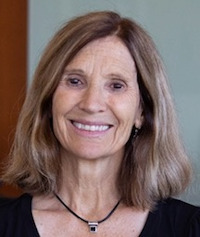Natural Resources Law: A Place-Based Book of Problems and Cases, Fifth Edition
Natural Resources Law: A Place-Based Book of Problems and Cases, Fifth Edition
Buy a new version of this textbook and receive access to the Connected eBook on Casebook Connect, including lifetime access to the online ebook with highlight, annotation, and search capabilities. Access also includes an outline tool and other helpful resources. Connected eBooks provide what you need most to be successful in your law school classes.
Natural Resources Law, Fifth Edition, continues to emphasize the importance of place through a visually rich text that invites students to consider the passion behind natural resources disputes. Chapters open with a map marking the geographic location of each case and all judicial opinions begin with a context-setting, place-based narrative and photograph. This teachable book groups readings into discrete, assignment-sized chunks and accommodates a wide range of pedagogical approaches. For those who want to focus on cross-cutting themes and policy, each chapter includes thought-provoking article excerpts concludes with a discussion problem that applies the chapter’s cases to a contemporary policy issue or dispute. For those who want to get into the nitty-gritty details of the law, each chapter presents statutory and regulatory excerpts in standalone, easily referenced sections, rather than scattered throughout the text.
New to the Fifth Edition:
- New/updated discussion problems, including: access to nature and urban conservation; Dakota Access Pipeline; expanding tribal management of resources; mitigation under Clean Water Act; and climate change and rising seas
- New cases, including: Wyoming v. DOI; WildEarth Guardians v. Zinke; Center for Biological Diversity v. EPA; Alliance for the Wild Rockies v. U.S. Forest Service; Wetlands America v. White Cloud Nine Ventures; Edwards Aquifer v. Bragg; Butte Environmental Council v. U.S. Army Corps of Engineers
- New/expanded discussion:
- Wildfire and state/private forestry regulation
- Negative impacts on Native Americans of the historical settlement of the public domain and the preservation movement
- Renewable energy infrastructure on public lands
- Overlooked and growing relevance of CWA section 404 on streams and wetlands
- Efforts to recognize “rights of nature”
- Importance of access to nature; role of urban parks
- ESA critical habitat; agency policy documents implementing the ESA
- Water transfers, groundwater regulation, and reserved rights
- Snowmobile use in Yellowstone National Park; continuing challenges to the Antiquities Act and presidentially designated national monuments
- Revised chapter on energy and federal lands by national expert Alexandra Klass, including debates over the use of federal lands for continued fossil fuel development and siting of renewable energy infrastructure on public lands
- Place-based approach—conveys passion and drama fueling resource disputes and policy and brings to life judicial analysis and statutory interpretation
- Broad national coverage—includes both traditional public lands issues and broader natural resource topics of interest to both eastern and western students
- Factually rich discussion problem at end of each chapter—based on a contemporary dispute or policy issue
Product Information
Natural Resources Law: A Place-Based Book of Problems and Cases, Fifth Edition
Connected eBook + Hardcover
Natural Resources Law: A Place-Based Book of Problems and Cases, Fifth Edition
Connected eBook (Digital Only)
Natural Resources Law: A Place-Based Book of Problems and Cases, Fifth Edition
LLPOD


